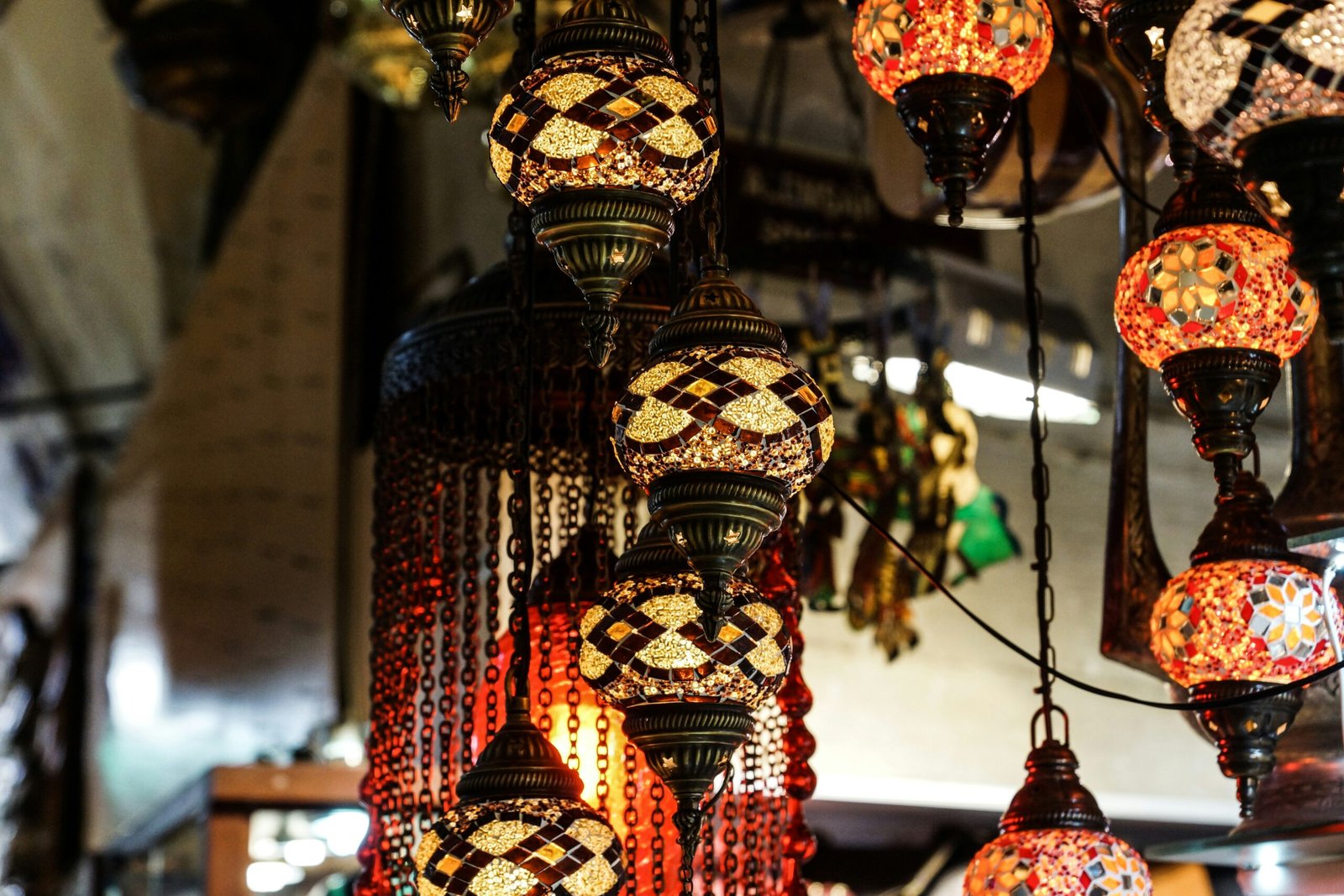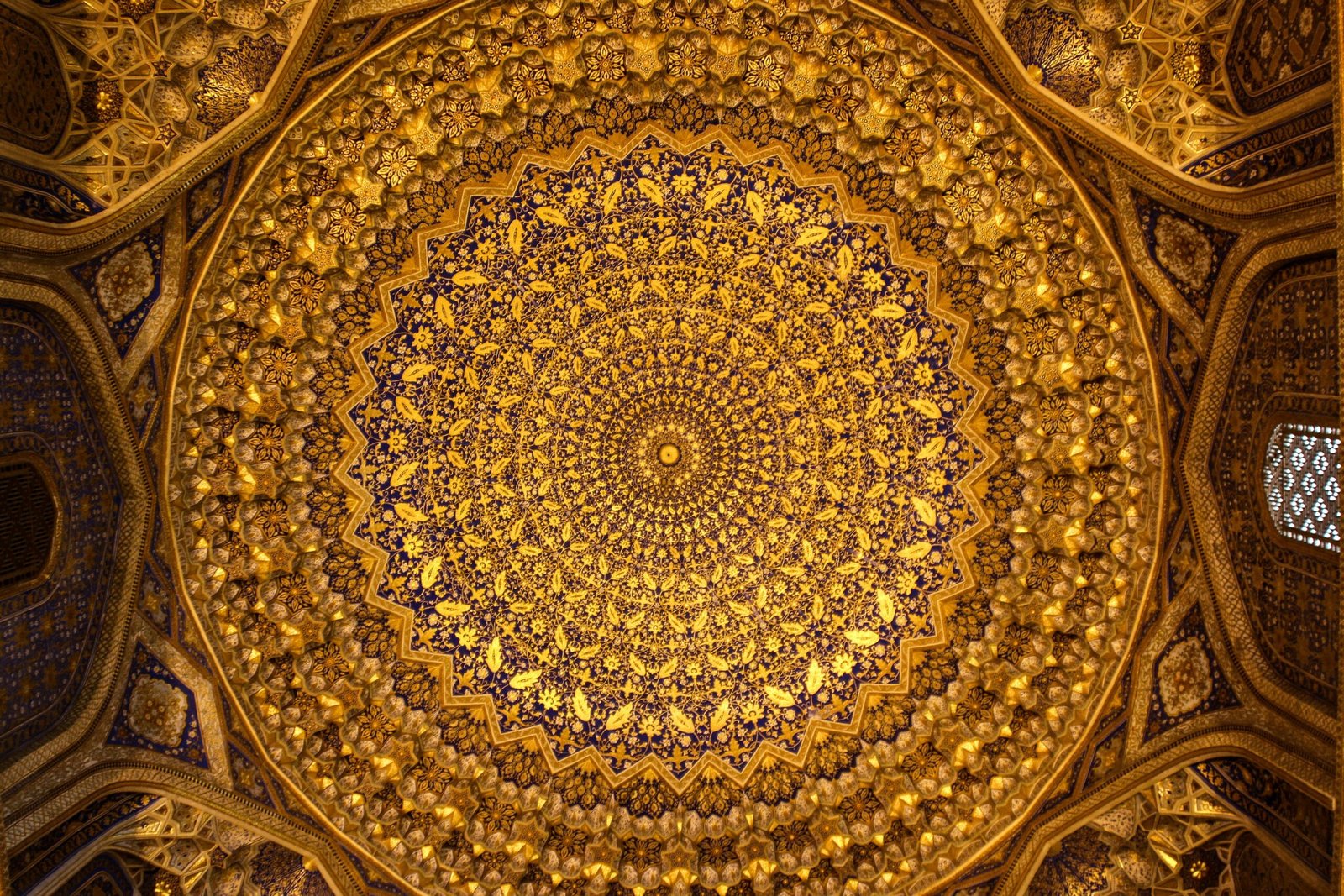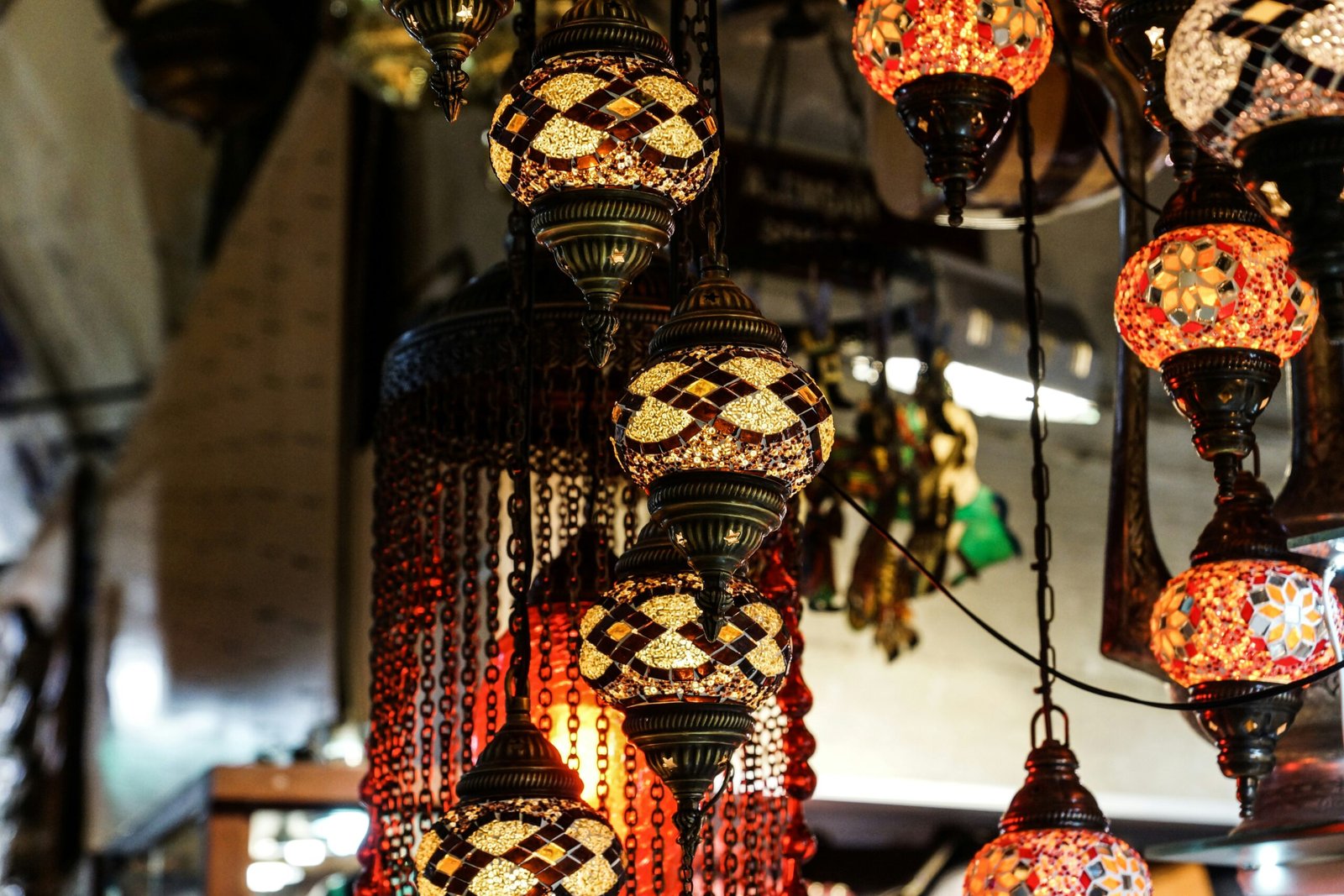Introduction to Eid ul-Adha
Eid ul-Adha, widely celebrated as the Festival of Sacrifice, stands as one of the most significant Islamic holidays. It is deeply rooted in the story of Prophet Ibrahim (Abraham), whose unwavering faith and devotion to God were tested when he was commanded to sacrifice his beloved son, Isma’il (Ishmael). Demonstrating profound obedience, Ibrahim prepared to fulfill this divine command. However, just as he was about to carry out the sacrifice, God intervened, providing a ram to take Isma’il’s place. This pivotal event symbolizes the ultimate act of submission to God’s will and serves as a powerful testament to faith, obedience, and divine mercy.
The origins of Eid ul-Adha trace back to this profound narrative, which is shared by multiple Abrahamic religions. Within the Islamic tradition, this story is commemorated annually on the 10th day of Dhu al-Hijjah, the last month of the Islamic lunar calendar. The holiday coincides with the conclusion of Hajj, the sacred pilgrimage to Mecca, which is one of the Five Pillars of Islam. Thus, Eid ul-Adha not only honors the historical and spiritual significance of Prophet Ibrahim’s sacrifice but also underscores the importance of unity, charity, and devotion within the Muslim community.
Throughout the world, Muslims observe Eid ul-Adha with various cultural and regional practices, yet the core tenets remain universal. The celebration typically begins with a special prayer service held in mosques, followed by the ritual sacrifice of an animal, usually a sheep, goat, or cow, symbolizing the ram provided by God. This act of Qurbani, or sacrifice, is performed with the intent of sharing the meat with family, friends, and those in need, reflecting the principles of generosity and compassion. As a time of reflection, family gatherings, and communal solidarity, Eid ul-Adha holds a profound place in the hearts and traditions of Muslims worldwide, embodying the spirit of sacrifice and faith.
Historical and Religious Significance
Eid ul-Adha, also known as the Festival of Sacrifice, holds profound historical and religious significance in Islam. This festival commemorates the unwavering faith and obedience of Prophet Ibrahim (Abraham) towards Allah (God). According to Islamic tradition, Prophet Ibrahim had a dream in which Allah commanded him to sacrifice his beloved son, Isma’il (Ishmael). Despite the profound emotional turmoil, Prophet Ibrahim, embodying ultimate faith and submission, prepared to fulfill the divine command. As he was about to carry out the sacrifice, Allah intervened and replaced Isma’il with a ram, thus sparing his son and rewarding Ibrahim’s steadfast devotion.
This act of divine intervention is celebrated and remembered by Muslims worldwide during Eid ul-Adha. The festival begins with a special prayer service held at mosques, followed by the act of Qurbani or sacrifice. Muslims who can afford it sacrifice an animal, typically a goat, sheep, cow, or camel, to honor Prophet Ibrahim’s willingness to sacrifice his son in obedience to Allah. The meat from the sacrifice is then distributed among family, friends, and the less fortunate, ensuring that everyone can partake in the festive spirit and communal harmony.
Beyond the ritual of sacrifice, Eid ul-Adha underscores the core Islamic values of faith, obedience, and sacrifice. It serves as a reminder of the importance of submitting to the will of Allah, even when faced with significant personal trials. The festival also highlights the spirit of sharing and giving, as the distribution of sacrificial meat fosters a sense of community and ensures that the blessings of the festival are shared with those in need. Through these acts, Muslims reaffirm their commitment to the principles of compassion, generosity, and unwavering faith that lie at the heart of their religion.
When is Eid ul-Adha 2024?
Eid ul-Adha, also known as the Festival of Sacrifice, is one of the most significant Islamic holidays, celebrated annually by millions of Muslims worldwide. In 2024, Eid ul-Adha is expected to fall on the 9th or 10th of July, based on the Islamic lunar calendar. The precise date may vary slightly depending on the sighting of the moon, which marks the beginning of the month of Dhul-Hijjah, the 12th and final month of the Islamic year.
The Islamic calendar is lunar-based, meaning that it is approximately 10 to 12 days shorter than the Gregorian calendar used in most parts of the world. Consequently, the dates for Islamic holidays like Eid ul-Adha shift each year in the Gregorian calendar. The date of Eid ul-Adha is determined by the sighting of the new moon, which can vary in different regions due to geographical and climatic conditions. Therefore, while the expected dates provide a general guideline, local moon sightings are crucial for confirming the exact day of the celebration.
Eid ul-Adha holds profound significance within the Islamic faith, as it commemorates the willingness of Prophet Ibrahim (Abraham) to sacrifice his son in obedience to God’s command. This festival also coincides with the annual Hajj pilgrimage to Mecca, which is one of the Five Pillars of Islam. The Hajj is a mandatory religious duty for Muslims that must be carried out at least once in their lifetime by all adult Muslims who are physically and financially capable of undertaking the journey.
During Eid ul-Adha, Muslims around the world engage in various rituals, including the sacrificial slaughtering of animals such as sheep, goats, or cows. The meat from these animals is distributed among family, friends, and the less fortunate, symbolizing sharing and charity. This act of sacrifice is a reflection of Prophet Ibrahim’s devotion and unwavering faith in God.
Rituals and Traditions
Eid ul-Adha, also known as the Festival of Sacrifice, is one of the most significant events in the Islamic calendar. It is marked by a series of rituals and traditions that embody the spirit of devotion, community, and charity. One of the central aspects of this festival is the special prayer known as Salat al-Eid. This prayer is performed in congregation, often in large open areas or mosques, and is a way for Muslims to come together and offer gratitude and supplication to Allah.
Another key ritual of Eid ul-Adha is the act of Qurbani, which involves the sacrifice of an animal, typically a goat, sheep, cow, or camel. This ritual commemorates the willingness of Prophet Ibrahim (Abraham) to sacrifice his son in obedience to Allah’s command. The meat from the sacrificed animal is divided into three parts: one-third is given to the family, one-third is distributed to friends and relatives, and the remaining third is given to those in need. This act of sharing ensures that the blessings of Eid are extended to everyone, especially the less fortunate.
In addition to these core practices, Eid ul-Adha is also celebrated through various other customs. Dressing in new or finest clothes is a common tradition, symbolizing purity and renewal. Families and friends visit each other, exchange gifts, and share festive meals, strengthening social bonds and fostering a sense of togetherness. The distribution of meat, visiting loved ones, and the act of giving gifts all serve to reinforce the values of generosity and community.
These rituals and traditions not only honor the historical significance of Eid ul-Adha but also underscore the principles of sacrifice, gratitude, and charity that are central to the Muslim faith. Through these practices, Muslims around the world express their devotion and celebrate their shared values and heritage.
Preparing for Eid ul-Adha
Preparation for Eid ul-Adha, also known as the Festival of Sacrifice, encompasses both spiritual and logistical elements that are crucial for the observance of this significant event in the Islamic calendar. Spiritual preparation often begins with fasting on the Day of Arafah, which is the day before Eid ul-Adha, and engaging in additional prayers. Fasting on this day is highly recommended as it is believed to expiate the sins of the previous year and the coming year, offering a spiritual cleanse and renewal.
Logistical preparations are equally substantial. Purchasing and caring for the sacrificial animal—typically a goat, sheep, cow, or camel—is an essential aspect of Eid ul-Adha. The animal should meet specific criteria of health and age as prescribed in Islamic teachings, ensuring that the sacrifice is both humane and respectful. Many Muslims take great care in selecting the best possible animal, reflecting the importance of the sacrifice. Once purchased, the animal must be cared for properly until the time of the sacrifice, which includes providing adequate food, water, and shelter.
The importance of cleanliness and purity in preparing for Eid ul-Adha cannot be overstated. This extends beyond personal hygiene to include the cleanliness of one’s home and the area where the animal will be sacrificed. It is customary to thoroughly clean and purify these spaces, symbolizing the physical and spiritual purification that the festival embodies. Cleanliness is a core component of Islamic practice and is particularly emphasized during significant religious observances such as Eid ul-Adha.
By meticulously preparing both spiritually and logistically, Muslims ensure that they are ready to observe Eid ul-Adha in a manner that honors its profound religious significance. This preparation reflects a commitment to the principles of sacrifice, devotion, and purity, which are central to the festival’s observance.
Eid ul-Adha Around the World
Eid ul-Adha, also known as the Festival of Sacrifice, is celebrated by Muslims worldwide. Despite geographical distances, the global Muslim community unites in spirit to commemorate this significant holiday. Each region brings its unique customs and traditions to the celebration, reflecting the diversity within the Islamic world.
In Saudi Arabia, where millions of Muslims gather for the Hajj pilgrimage, Eid ul-Adha is marked by grand prayers at the Masjid al-Haram in Mecca. The act of Qurbani, or animal sacrifice, is performed, symbolizing Prophet Ibrahim’s willingness to sacrifice his son in obedience to Allah. The meat from the sacrifice is distributed among family, friends, and the needy, embodying the spirit of generosity and community.
In South Asia, countries like Pakistan, India, and Bangladesh celebrate Eid ul-Adha with vibrant festivities. Traditional foods such as biryani, kebabs, and sweets like sheer khurma are prepared and shared. People don new clothes, often adorned with intricate embroidery, and visit mosques for communal prayers. The streets come alive with markets selling festive items, and families come together to partake in the joyous occasion.
In Africa, from Nigeria to Egypt, Eid ul-Adha is marked by a blend of religious devotion and cultural festivities. In Nigeria, the celebration includes elaborate feasts featuring jollof rice and other local delicacies. In Egypt, the occasion is known as “Eid al-Kabir” and is characterized by family gatherings, sharing of meals, and giving to the underprivileged. The communal prayers are held in open spaces, reflecting the inclusive nature of the celebration.
In Western countries, Muslim communities come together to celebrate Eid ul-Adha in multicultural settings. Mosques and Islamic centers organize special events, including communal prayers, charity drives, and cultural fairs. The emphasis is on fostering a sense of unity and belonging among Muslims, while also engaging with the broader community to share the significance of the festival.
Overall, Eid ul-Adha serves as a testament to the global unity of Muslims. Despite diverse cultural expressions and regional nuances, the core values of faith, sacrifice, and community remain central to the celebration. This shared commitment transcends borders, bringing Muslims together in a collective act of worship and gratitude.
The Spirit of Giving and Charity
Eid ul-Adha, also known as the Festival of Sacrifice, is a significant event in the Islamic calendar that emphasizes the principles of giving and charity. This festival commemorates the willingness of Prophet Ibrahim (Abraham) to sacrifice his son as an act of obedience to God. Reflecting this profound act of devotion, Muslims around the world participate in the ritual of Qurbani, or the sacrifice of an animal, often a goat, sheep, cow, or camel.
The essence of Eid ul-Adha is not merely in the act of sacrifice but in what follows—the distribution of the sacrificial meat. A critical tenet of this festival is sharing the meat with family, friends, and particularly those who are less fortunate. This practice is a manifestation of the core Islamic values of compassion, generosity, and social responsibility. It ensures that the blessings of the festival extend beyond individual households to the broader community, fostering a sense of unity and care for the needy.
During Eid ul-Adha, numerous charitable activities gain prominence. Islamic organizations and community groups often organize special events and initiatives to support those in need. These may include distributing food packages, clothing, and other essential items to impoverished families. Additionally, many Muslims take this opportunity to contribute to various charitable causes, either through monetary donations or by volunteering their time and services.
Organizations such as Islamic Relief, Muslim Hands, and local masjids (mosques) play a pivotal role in coordinating these charitable efforts. They facilitate the process of Qurbani, ensuring that the meat reaches those who require it most, and they often extend their services to include medical aid, educational support, and emergency relief globally. This collective effort underscores the spirit of Eid ul-Adha, transforming the festival into a beacon of hope and kindness for many.
Ultimately, Eid ul-Adha serves as a powerful reminder of the importance of charity in Islam. It encourages Muslims to reflect on their blessings, to act with empathy, and to strive towards a more equitable and caring society. Through the acts of giving and sacrifice, the festival reinforces the bonds of community and brotherhood, exemplifying the true spirit of Islamic generosity.
Conclusion: Reflecting on Eid ul-Adha
Eid ul-Adha, known as the Festival of Sacrifice, is rich with profound themes that resonate deeply within the global Muslim community. Central to this festival are the enduring values of sacrifice, faith, community, and charity. These core principles are not just historical or religious traditions; they are timeless values that guide the lives of millions around the world.
The act of sacrifice during Eid ul-Adha commemorates the willingness of Prophet Ibrahim (Abraham) to sacrifice his son in obedience to God’s command. This story underscores the immense faith and unwavering trust that believers place in their Creator. In contemporary times, the concept of sacrifice extends beyond the ceremonial slaughter of animals; it invites individuals to reflect on what they can offer for the greater good of humanity. Whether it is time, resources, or personal comfort, the spirit of sacrifice encourages us to put others before ourselves.
Faith, intertwined with sacrifice, is the bedrock of Eid ul-Adha. It calls for deep reflection and spiritual growth, urging believers to strengthen their connection with God. This period of reverence and prayer fosters a sense of inner peace and a renewed commitment to leading a life guided by divine principles.
Community is another cornerstone of Eid ul-Adha. The festival brings families, friends, and neighbors together, fostering a sense of unity and collective joy. It is a time when the bonds of kinship and friendship are reinforced, and communal harmony is celebrated. Sharing meals, exchanging gifts, and partaking in communal prayers are expressions of this unity.
Charity, or giving to those in need, is a significant aspect of Eid ul-Adha. The practice of distributing meat to the less fortunate ensures that everyone partakes in the festivities. This act of generosity is a reminder of the importance of empathy and social responsibility.
As we celebrate Eid ul-Adha, let us embody these values in our daily lives. May the spirit of sacrifice, the strength of faith, the warmth of community, and the kindness of charity guide our actions and decisions. Wishing you a blessed and joyful Eid ul-Adha!




